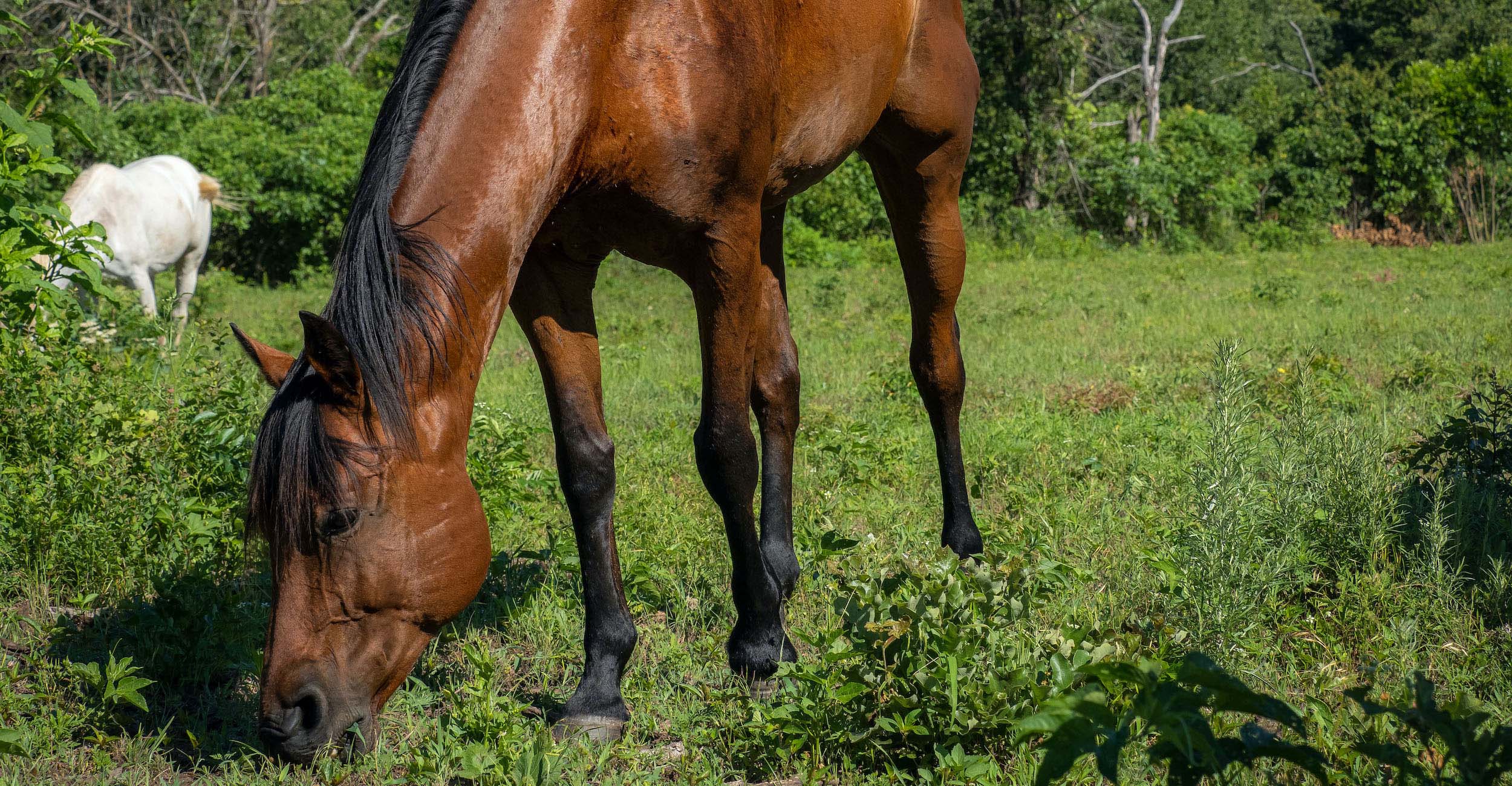
The 5 core vaccines all horses need
Tuesday, May 31, 2022
Media Contact: Gail Ellis | Communications Specialist, Copywriter | 405-744-9152 | gail.ellis@okstate.edu
Horses require annual vaccines to support their health, and when insects and wildlife are more active in the spring and summer, routine equine vaccinations become especially important.
Whether a horse lives a solitary life in a pasture or is exposed to hundreds of other horses every weekend, Kris Hiney, Oklahoma State University Extension equine specialist, and Dr. Lyndi Gilliam, veterinarian and professor of equine internal medicine with OSU’s College of Veterinary Medicine, recommend all horses receive core vaccines to safeguard against the following five viruses and diseases.
- Rabies — fatal to horses and transmitted by the bite of infected wildlife (raccoons, opossums and bats).
- Eastern/Western equine encephalitis — transmitted through mosquitoes; causes neurologic disease and has a high mortality rate.
- West Nile Virus — transmitted through mosquitoes; may result in a fever and causes neurologic disease.
- Tetanus — a most often deadly bacterial disease that enters the body through a dirty cut or puncture wound.
Because most of these diseases are arboviruses, or mosquito borne, booster vaccines 30 days prior to mosquito season is ideal. In most of Oklahoma, this is typically February or early March. In areas where mosquitoes are present year-round, bi-annual West Nile vaccination may be recommended.
Another routine health precaution, deworming, depends on the presence of water. Hiney said parasites survive better in areas with more moisture, such as eastern Oklahoma compared to the western part of the state where the climate is drier and more arid. Veterinarians suggest conducting fecal egg counts on horses to develop a personalized deworming protocol.
“Our go-to standard is always at least twice a year, but we’re trying to help horse owners implement more strategic worming by only deworming horses who have a high parasite count,” she said. “Exceptions to this method would be young horses because their immune systems are not yet adapted to handling the parasite burden.”
Gilliam said a specialized deworming plan helps avoid parasite resistance, which is common now in small ruminants.
“Deworming is not one size fits all. Different horses will have different susceptibility to parasites in a range of environments and will need treated accordingly,” she said.
Horses that are exposed to other horses and livestock through rodeos, shows, parades, feedlots and other public events might also need risk-based vaccines for protection against respiratory illnesses like herpes virus, influenza and strangles.
“It simplifies the task when you think about how horses contract the diseases we’re vaccinating against,” Gilliam said. “Anywhere horses congregate with other horses, influenza and herpes can spread through the air. They don’t have to be nose to nose, just in proximity. If there’s an infected horse in a barn where fans are on, those fans will spread the virus all around the barn.”
Gilliam said horses don’t hold their immunity to respiratory diseases as long as other types of disease, so administering a booster three times a year or quarterly is a safe precaution.
Strangles is another risk-based vaccine administered to prevent a highly contagious bacterial disease. Gilliam said a horse can suffer significant complications from the vaccine if it was previously exposed to the disease. A licensed veterinarian should administer the strangles vaccine sparingly and only when the risk of contracting the disease is higher than the chance of a vaccine complication.
Finally, don’t forget about expecting mares and new babies. Pregnant mares should follow a different vaccination schedule recommended by a veterinarian. Foals born this spring should also begin a safe regimen of preventative vaccines, which will depend on the mare’s vaccine status and can be developed in conjunction with a veterinarian.
